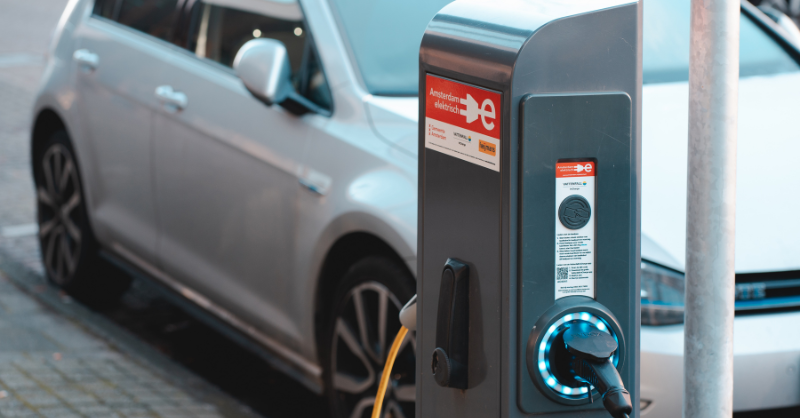
EV demand and EV charging - things will change
If you think about the expected rise of EV's, and their need for frequent charging, from a strategic perspective, you start to realise that large elements of our economic system could change as a result.
If you think about the expected rise of EV's, and their need for frequent charging, from a strategic perspective, you start to realise that large elements of our economic system could change as a result. Personal transport is at the heart of many of our actions and decisions. System changes, such as the roll out of EV's, can have some unexpected consequences. Or more strictly, not so much unexpected as not anticipated.
If Electric Vehicles (EV's) are going to become the dominant form of passenger transport, then it's obvious that people will need to have places to charge them. Research tells us that an absence of charging facilities is probably one of the biggest barriers to EV adaption. When you listen to the debate about this, most people seem to assume this is a government issue (via subsidies etc) or something that only impacts the automotive or electricity sectors.
But, while this might be true now, it's clear that all Sustainability Professionals have a role to play in the medium term. Why ? Because the shift to EV's is going to create a system change. We currently use petrol stations (or gas stations for those outside of Europe) because that was the best way to refuel. We should not assume that the 'old' way of working will survive into the 'new' age. Which will have implications for our retail, leisure and work behaviour.

The details
Summary of a story published in Euractiv:
The French Government has announced new funding for the roll out of EV charging points. This extra funding is driven at least in part by the requirements of the EU’s new alternative fuel infrastructure regulation. The report says that France aims to have over 400,000 charging points on it's road network by 2030. This is up from 111,000 now. Taking into account charging points installed in private homes and businesses, the number of charging points in France currently stands at 1.7 million.
The Government estimates that by the end of 2023, the French fleet of electrified vehicles (electric and plug-in hybrids) will total 1.5 million units, of which 650,000 will be filly electric. This figure is expected to increase tenfold by 2035, when the sale of new diesel or petrol cars will be prohibited across the EU, meaning that the number of charging points will have to keep pace. This takes funding to a total of over E600m.
The announcement comes just days after the new French EV sales data for October showed that plug in EV's now have a market share of over 26%. And if mild hybrid's are included, they are outselling petrol and diesel sales combined (80,895 vs 65,935).
The future will not look like the past
We tend to assume that we will charge our EV's in a similar way to how we fill up our petrol and diesel cars. That being able to 'fill up' while on the go will continue to be really important. And hence most government support, as well as incentivising slow home charging, is focused on the highly visible public charging network. Based on the evidence, this seems to be a sensible approach, at least for now.
But, in the same way that first ice, and then air conditioning, shifted the economics of summer theatre performances back over a century ago, technology has a way of changing our behaviour. Especially over an extended period of time.

For instance, a study by a team at the Technical University of Denmark found that "when it comes to the effect of public charging infrastructure on EV adoption, mixed effects have been found". In other words, more public charging sometimes helps improve EV sales, but the evidence is not clear. In fact one study seemed to show that while high availability of charging infrastructure does not lead to high adoption rates, low availability is an inhibitor to the adoption of EVs.
It's also less clear what happens when EV's become more prevalent. A US study suggests that shifting current EV charging from home to work, and from night to day, could cut costs and help the grid. We wrote about this when the study first came out in late 2022.

This seems quite sensible to us. As EV's become more common, people will start to build new refueling habits, that are better suited to their new lifestyles.
This could have serious implications for all sorts of organisations. The obvious one is the current fuel retail market. McKinsey says that "meeting the demand for EV charging infrastructure is a major opportunity for mobility retailers". But equally existing fuel retailers could be heading the way of video rental outlets.

But it will probably go wider than this. Let's also consider retail and leisure behaviour. Will we want to top up when we shop, or visit the cinema ? It makes sense. After all the dwell time would be more than enough to fully charge the average EV. And given this would the availability and cost of charging become an important factor in where we shop (or pick up our coffee) ?
For many retail locations, fitting EV charging infrastructure could be straightforward, but if your local electricity network is congested then you need to plan ahead. Especially if you have a large car park, with hundreds of cars potentially charging at the same time. Plus, of course, we could see the emergence of companies that offer EV charging as a plug and play service.
And new EV charging behavior could also impact people's employment decisions. The availability of free or heavily subsidised charging could be the employee benefit that encourages people to work for your organisation, rather than the other similar company down the road. And in a world of low unemployment, attracting employees is important.

As Sustainability Professionals we not only need to consider what system changes are needed, but also what implications these changes could have for our organisation's.
Something a little more bespoke?
Get in touch if there is a particular topic you would like us to write on. Just for you.
Contact us
Please read: important legal stuff.





